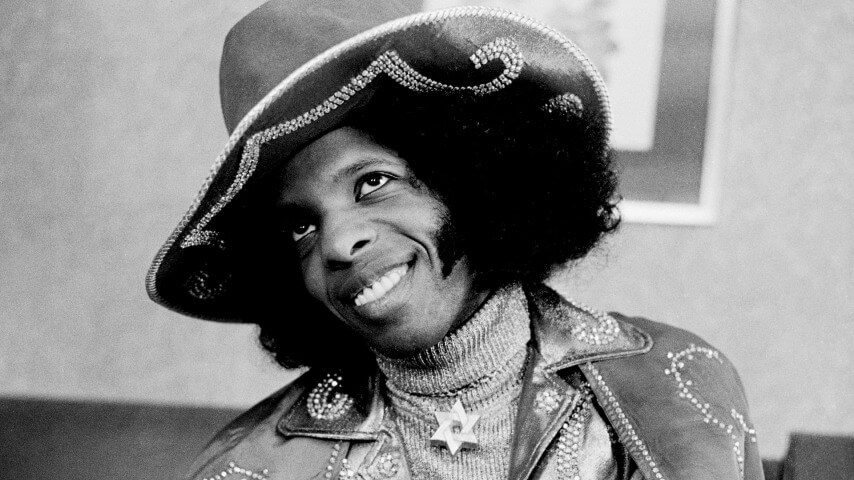Sly Stone—frontman of Sly and the Family Stone and funk music pioneer—has died. “After a prolonged battle with COPD [chronic obstructive pulmonary disease] and other underlying health issues, Sly passed away peacefully, surrounded by his three children, his closest friend and his extended family,” a statement from his family reads, per Variety. “While we mourn his absence, we take solace in knowing that his extraordinary musical legacy will continue to resonate and inspire for generations to come.” They also added that Stone “recently completed the screenplay for his life story, a project we are eager to share with the world in due course.” Stone was 82.
Born Sylvester Stewart in Denton, Texas, Stone’s musical career began in the single digits. He made his first record appearance at the age of 9 on a gospel single recorded by the Stewart Four, a group that also included his brother, Freddie. With his band Sly and the Family Stone (which included Freddie), he would go on to change the face of funk music through energetic, chart-topping singles like “Dance to the Music,” “Everyday People,” and “Thank You (Falettinme Be Mice Elf Agin),” as well as a legendary performance at the original Woodstock festival.
“Sly created the alphabet that we are still using to express music,” Questlove, who just released his documentary <i>Sly Lives! (AKA The Burden Of Black Genius)</i> earlier this year, said of the artist, per Variety. “He was the first to take advantage of being a bedroom musician, multi-track recording, the wah-wah, the drum machine, and doing everything by himself. We praise Stevie Wonder and Prince for these things, but Sly was the prototype. He also single-handedly revived hip-hop with all of the samples that came from him.”
But while dozens of artists modeled their sound after the genre he pioneered, Stone was “never annoyed” by the imitators, as he told The Guardian in 2023. “I was always happy if someone took the things I was doing and they liked them enough to want to do them on their own. I’m proud that the music I made inspired people.”
Even as Stone’s seminal 1971 album There’s A Riot Goin’ On hit number one on the charts, there was trouble brewing for the band. Stone’s erratic behavior, missed shows, and drug use escalated, eventually leading to the end of the group. Stone recorded a number of less successful solo albums in the following years and collaborated with artists like Bobby Womack and Jesse Johnson. He was also in and out of jail during this time, and dealt with addiction and homelessness later in his life.
Still, looking back, as he did in his 2023 memoir, Thank You (Falettinme Be Mice Elf Agin), Stone doesn’t regret those years. “Even in those days I worked,” he also told The Guardian. “I didn’t like to be the kind of person who just drew the blinds and didn’t work. It was important to me that I was in a place where I could always create music. But… I might have stopped [doing drugs] sooner knowing what I know now.” In the same interview, he added, “I never lived a life I didn’t want to live.”

 Keep scrolling for more great stories.
Keep scrolling for more great stories.
